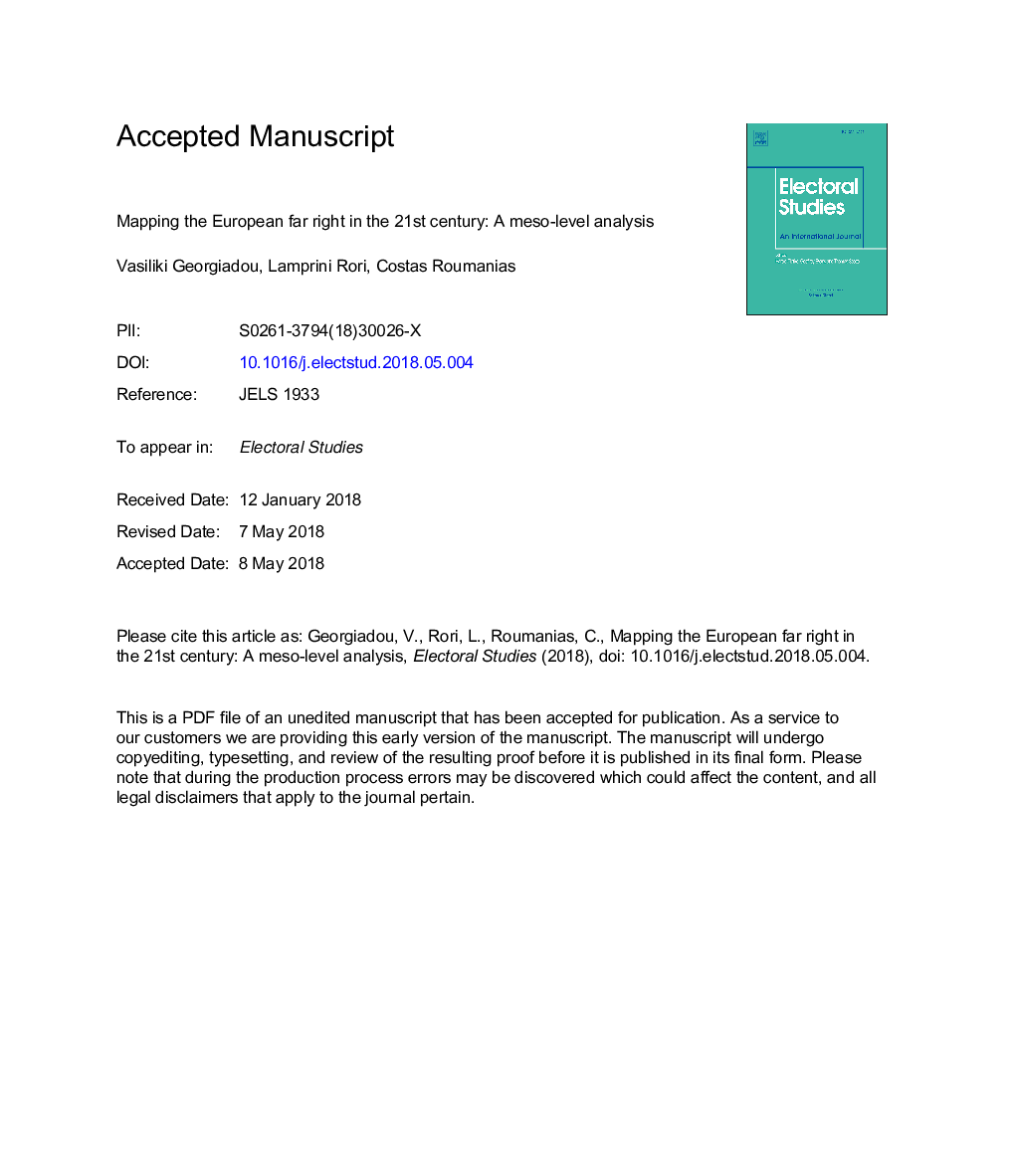| Article ID | Journal | Published Year | Pages | File Type |
|---|---|---|---|---|
| 7463189 | Electoral Studies | 2018 | 50 Pages |
Abstract
Using a new regional database of national and European parliament elections on NUTS 2 level in 28 countries, we test the main theories explaining the electoral support for the European far right. Accounting for differences between the extremist (ER) and populist radical right (PRR), we find evidence in support of both economic insecurity and cultural backlash theses. The ER vote is associated mostly with economic insecurity and the PRR vote mostly with cultural backlash. Whereas micro and macro-level analyses have often produced conflicting results, unemployment, immigration and income inequalities have significant and robust effects at the meso level, indicating that the factors determining the far right vote might at large be operating at a sub-national level. In line with the “contact” and “salience-of-change” hypotheses, the effects of economic insecurity are more pronounced in regions that undergo sudden changes compared to those with high levels of immigration.
Keywords
Related Topics
Social Sciences and Humanities
Social Sciences
Geography, Planning and Development
Authors
Vasiliki Georgiadou, Lamprini Rori, Costas Roumanias,
